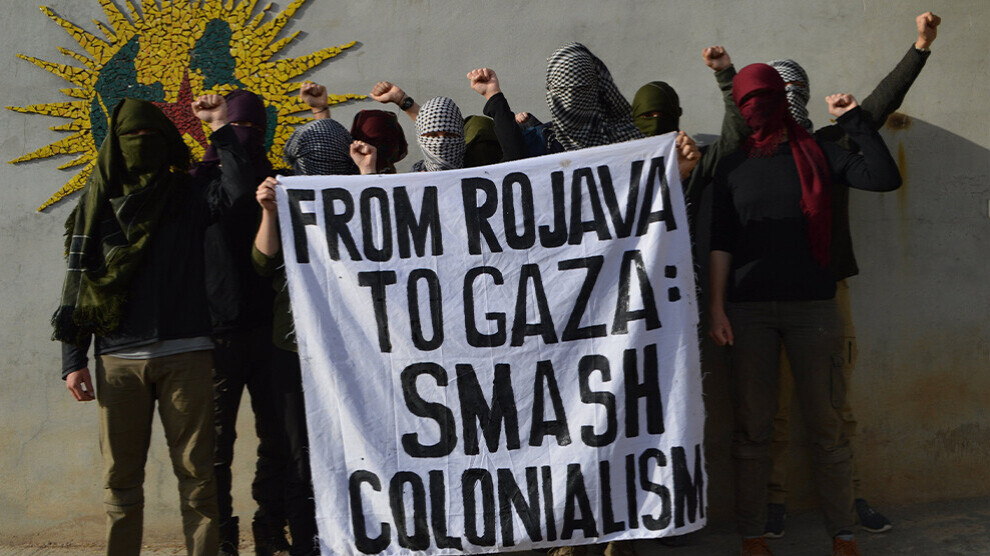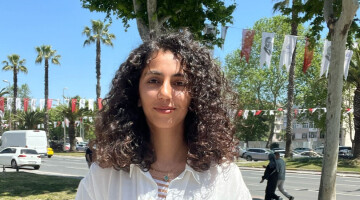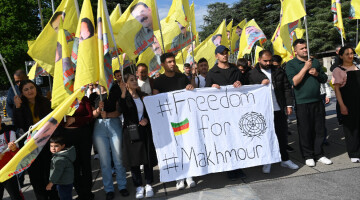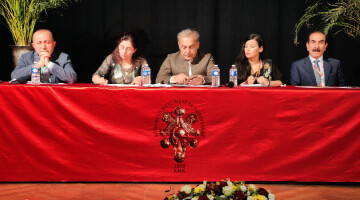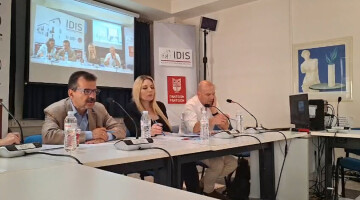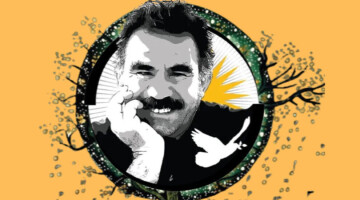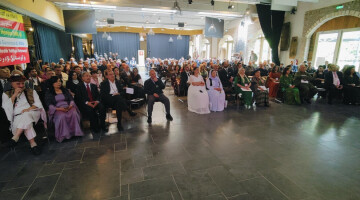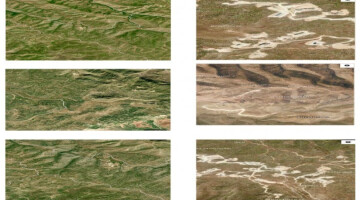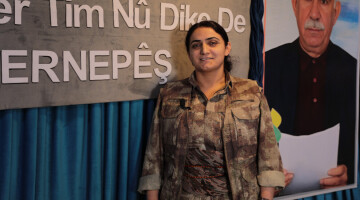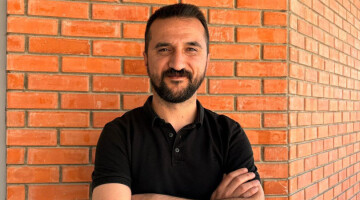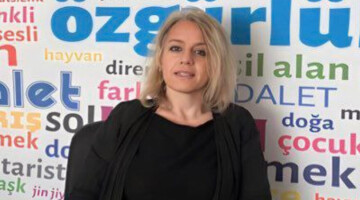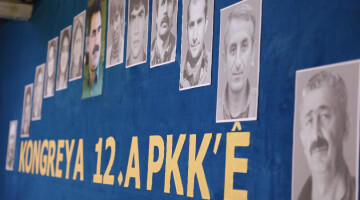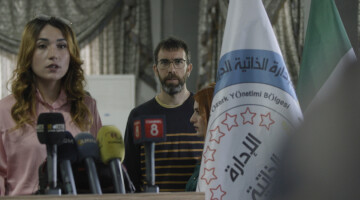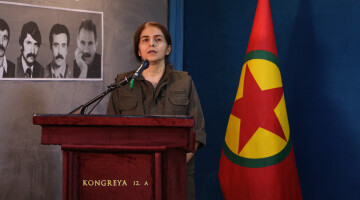Over the past two weeks, we have seen solidarity around the world with the voices of peace in Palestine and Israel. This international pressure has played a crucial part in ending the recent war, which has only benefited the power elites on both sides. The millions of people who have taken to the streets in support of the fight for freedom and democracy in Palestine and Israel have demanded an end to war, occupation and oppression. They have looked for solutions. Now - after the end of the bombing - this solidarity must not lose its strength and momentum. For this to succeed, it is above all essential that solidarity with struggles in the Middle East does not take place in a fragmented and merely ephemeral manner. That it begins with words and continues with practical action. Those who showed solidarity with Gaza yesterday must therefore extend this solidarity to Kurdistan today.
The Middle East: A Region with a Big Problem
Palestine, Afghanistan, Yemen or Kurdistan: large parts of the Middle East are currently in a state of war and crisis. The Kurdistan Freedom Movement refers to this situation, which has been ongoing since the early 1990s, as the Third World War. Every country in the region, every social group is affected by this war and the accompanying social, cultural, political and economic crisis. The causes go back a long way historically. They also lie within the region itself, but have been created, fueled and sustained in large part by Capitalist Modernity and its leading imperialist powers. KCK Co-Chair Cemil Bayik summed this up succinctly with regard to Britain: "Britain knows the Middle East and its conflicts very well. In fact, it has created a lot of the conflicts that exist in the Middle East today." What was established by Britain and France in the Middle East 100 years ago is being perpetuated today by NATO countries under the leadership of the United States: the nation-state along with its arbitrary border demarcation, homogeneous national cultures and collaborating national power elites. Today, Palestine suffers from this problem just as much as Kurdistan.
Peace and Freedom are Something Holistic
A big problem cannot be fixed with small, locally limited solutions. To put it concretely in terms of today's Middle East: Palestine will never be peaceful and free as long as Kurdistan groans under the onslaught of Turkish fascism. The same is true the other way around. Capitalist Modernity is well aware of the need for a holistic policy for the Middle East. That is why the USA, as the leading power of this system, has been pursuing a comprehensive intervention in all parts of the region for years within the framework of the 'Greater Middle East Project'. The aim of this intervention is to channel as much of the region's wealth as possible to the capitalist centers such as London, Berlin and Washington. But if we want to achieve peace and freedom in the region, we also need a strategy for the entire Middle East: from Gaza to Gare. From Ankara to Alexandria. It is not a coincidence that Abdullah Öcalan wrote in 2004 about the interconnections of the various conflicts in the region: "The most important medium-term problems are the Arab-Israeli and the Kurdish-Arab, Kurdish-Iranian and Kurdish-Turkish relations, all of which have a long history. [...] A solution to the Arab-Israeli problem depends in large part on peace and democratization in the region. There is a mistaken view that the Israel-Palestine problem must be solved first. However, this approach risks in reality delaying a solution for another fifty years. One of the main causes of the problem is the Arab states and their societies, which are not becoming democratized. Democratization of state and society would create conditions for peace between Palestine and Israel. [...] The current status of the Kurds is tantamount to forcing them to revolt. If a sustainable, meaningful, democratic solution cannot be put in place, a bloodbath awaits us that would surpass the Israel-Palestine conflict. A conflict with a Kurdish population of 40-50 million settling in inaccessible areas would exacerbate the region's problems."*
Continuing Solidarity for Palestine in Kurdistan
A fragile ceasefire has been in place in Palestine and Israel since a few days now. And in Kurdistan the war continues unabated - especially in the South Kurdish regions of Avasin, Metina and Zap. If we want the solidarity shown all over the world in recent weeks for the Palestinian struggle for freedom to bear fruit, we must broaden and strengthen our solidarity. We must understand that the solution to Palestine lies in Kurdistan. Because that is where an alternative to the state and capitalism is being defended. There, a hope is being attacked that gives strength and perspective to democratic forces all over the world. Mustafa Karasu also referred to this when he called two days ago in the name of the KCK for international solidarity with the resistance against the Turkish attacks on Southern Kurdistan. Taking this call seriously is a consistent and logical consequence of the solidarity with Palestine. For if in Kurdistan and Palestine the nation state together with its mechanisms of massive oppression and exploitation are overcome, the entire Middle East will finally be able to breathe a sigh of relief. Then freedom and democracy will determine people's lives from Kabul to Cairo. Practical solidarity in the capitalist centers will be decisive for this.
* This quote was translated from the German version of Abdullah Öcalan`s book Jenseits von Staat Macht und Gewalt (Beyond State, Power and Violence).
RELATED NEWS:

